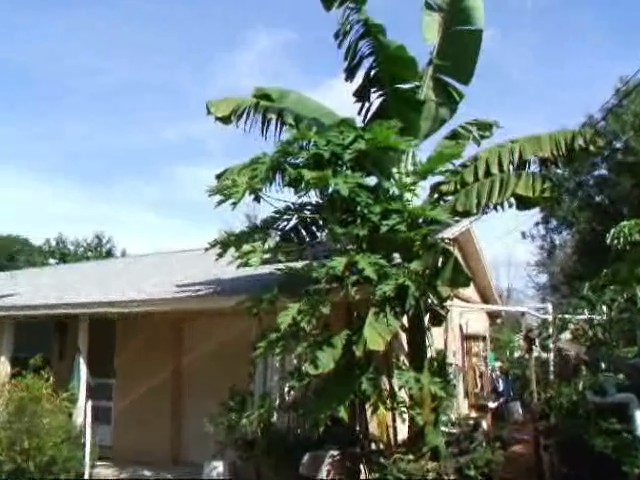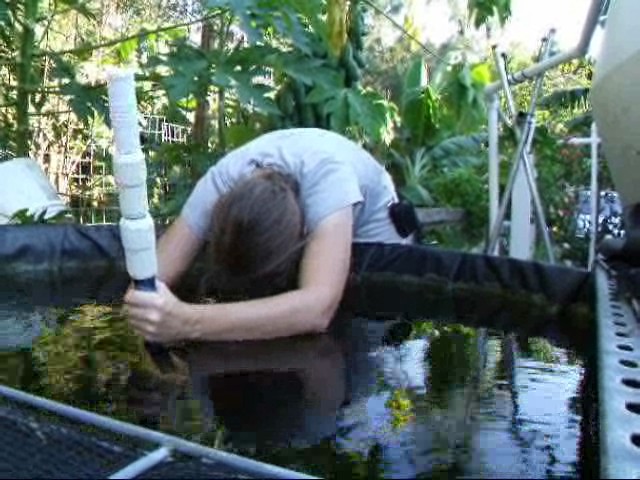In these times of uncertain economies and fear of food security, there are things we can do to improve our situations. Those of us in sub-urban areas are in especially good positions to start making small changes with a big impact. Sustainability and food security right in our own backyards might not seem much of a stand against hunger but understanding home food production will go a long way if a disaster does happen.
I must admit that this post is a bit of a rant so if you are not interested, skip on to another post. I believe it is possible for a family in a house with outdoor space to grow a portion of their food sustainably. It might not cover everything but it could well provide a huge portion of a families diet and make a big difference in food security and nutrition.
We can improve our local ecosystems by adopting water wise gardening practices and replace our lawns with edible landscaping. By avoiding excess chemicals in our own yards we can protect the water supply right at home, this is a step in the right direction to sustainability. We can also reduce our family’s contact with toxic chemicals by avoiding their use in our yards, this is just healthy. The yards and lawns in sub-urban neighborhoods accounts for a large % of American water, chemical fertilizer, pesticide, and herbicide use. Much of this runs off into ground water and percolates into the drinking water sources.
Even through we can’t expect the average American to grow very much of their own food in a backyard space, simply growing a small amount of food at home will still have a big impact on food security. The benefits of gardening go far beyond simply having a fresh tomato or lettuce for your salad (though that is a great benefit) spending time relating with nature and getting to know how one’s food is grown is an expanding experience. Spending time outdoors instead of in front of a computer screen, in some situations getting physical activity moving mulch or compost or reaching and stretching to tie up or harvest the tomatoes. There are also educational opportunities to share with young people to explain biology about how plants grow. Then there is the benefit of not needing to mow the lawn if you don’t have one, not buying gas for the lawn mower is a step to sustainability. Finally, the empowering feeling of eating food one has grown is almost beyond description.
I add to this keeping some backyard chickens for eggs (and they do a wonderful job weeding and turning the soil to make it even more productive) and for those feeling more adventurous, there are many other small food animals that can be raised inexpensively in a backyard or aquaponics system to provide protein as well as helping with the garden. These steps could well protect a family from hunger in a true disaster and that is food security.
Most of these small things are “normal” in poor countries where hunger and malnutrition is the norm. Families keep some birds for eggs/meat and everyone manages a garden even it it is only a window box or small square of dirt growing a few plants to help supplement the families diet.
It is scary how many people here in America are probably suffering some mineral deficiencies (since they mainly eat processed foods) while their family spends lots of money to fertilize and water a lawn that simply gets mowed and the clippings hauled away to a landfill to be wasted nutrients. For nearly free, a part of that space could be turned into a productive garden to add some fresh safe veggies to the families diet. It doesn’t even have to take very much work.
Sadly there are neighborhoods out there with Home Owners Associations that will dictate that vegetable gardens are “not allowed” because it is residential property and a food garden is some how a danger to public safety. (Apparently the lawnmowers and pesticides that require flags to keep people off the grass so they don’t get sick are better for our environment and drinking water?)
If we wait until there is a disaster, that is too late to start thinking about growing a garden. Those people who are already growing something are then ones with the head start.
Here is another post you may find interesting Comming Back Around to the Earth





Leave a Reply